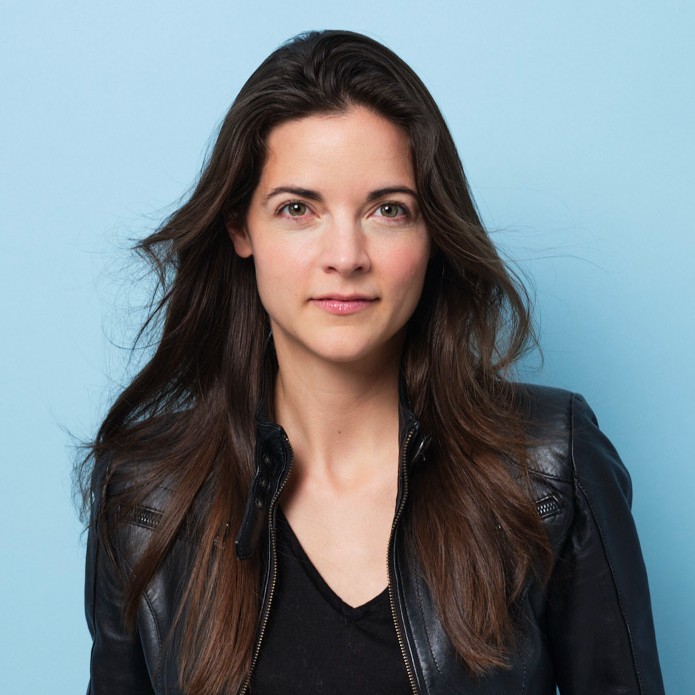VC Backed versus PE Backed with Kathryn Minshew
- 0.5
- 1
- 1.25
- 1.5
- 1.75
- 2
Intro: Welcome to the Daily Bolster. Each day we welcome transformational executives to share their real world experiences and practical advice about scaling yourself, your team, and your business.
Matt Blumberg: Welcome to the Daily Bolster. I'm Matt Blumberg, the co- founder and CEO of Bolster, and I'm here today with Kathryn Minshew, who is the founder and CEO of the Muse. Kathryn, good to have you here.
Kathryn Minshew: Thank you so much. I'm excited to be here.
Matt Blumberg: I am excited to talk to you. You have been one of my favorite New York CEOs for a long time, and that was before we even got into the jobs business, so now we actually have extra things in common. And for people who haven't been following closely, you took the Muse through a pretty significant transition about a year ago from your original venture- backed cap table to a private equity cap table to facilitate some M& A activity, which you've been doing really well. The question I have for you today in our short format is what are the top three things that you've noticed that are differences between working for a venture- backed company and working for a owned company?
Kathryn Minshew: So I think the first one that I would say is far closer attention to day- to- day operating metrics. When I was venture backed, which the Muse was for probably six or so years, we had quarterly board meetings, three hours. We would sometimes go pretty deep, but there was not always a consistent cadence in between those meetings around the day in and day out rhythm of the business, which can be good and bad. And now I would say that we have deep dives on specific topics or overall performance and operating metrics every other week at the moment
Matt Blumberg: That matches the experience I've had. So both more detail oriented and a much different frequency.
Kathryn Minshew: It's both helpful and, at times, I think that there's a lot of time that can be put into that back and forth. So, sometimes it's fantastic. You get partnership and new ideas. I think sometimes you can feel like, all right, how do I prioritize between what you need and what the business needs? So we're all just in pretty open dialogue about that. As long as you have good communication, you can make it work. Second thing that I would say is the M& A orientation has changed. Now that's something that we sought out explicitly. I had a thesis and a strategy about rolling up parts of the recruitment and HR space, and I think private equity was a partner that had a lot of experience with M& A. And a lot of appetite for thinking about how to structure and engineer deals to make them successful.
Matt Blumberg: That is part of the playbook for sure, for product equity. Okay. And what about number three?
Kathryn Minshew: And then number three I think would be the switch from high growth, high burn to a profitable and cashflow focused operating model. Now that is a transition that is hard for a lot of businesses. We've had to do a lot of employee communication around why we're making the shift, what this means. It has changed to some extent the way we think about the bets we place, the investments we make. Again, we're very cognizant of things like how long our customers take to pay and the flow of cash through our business. But ultimately it's also been a pretty helpful discipline. So I think any of these things, they're very different paths and different choices and can be great for some businesses and some environments and challenging for others and others. So I think any of these things are, if you know what you're signing up for, you can evaluate the pros and cons and make the right decision for your company.
Matt Blumberg: Yeah. Those are three great examples. I always feel like venture capital and private equity are like brothers from another mother or cousins or something like that. There's obviously a lot in common with the way those firms are structured and limited partnerships in general partnerships. But boy, does it feel different to work with them.
Kathryn Minshew: Very, very different. And I think it's interesting too, before we made the transition, I talked to a number of founders and I tried to find more online and available information. One of the things I love about the fact that you're doing this podcast is it was actually really hard for me to get perspectives on that, that weren't from somebody that I knew personally and who was willing to talk to me directly.
Matt Blumberg: All right. Well, this will be five minutes. That will be easy to share. Kathryn Minshew from the Muse, thank you for being here.
Kathryn Minshew: Thanks for having me.
DESCRIPTION
Today on The Daily Bolster, Kathryn Minshew shares the top three differences between working for a company that is venture-backed vs. private equity owned. Whether you’re actively considering a transition, or are a CEO just looking for perspective, this episode is a great resource.
Kathryn Minshew is the founder of The Muse, a career platform used by over 70 million people to find jobs at companies whose people, benefits, and values align with their unique professional needs. Under her leadership, The Muse pioneered the concept of values-based job search and was recently named one of Fast Company's 50 Most Innovative Companies in the World.
Today's Host

Matt Blumberg
Today's Guests


